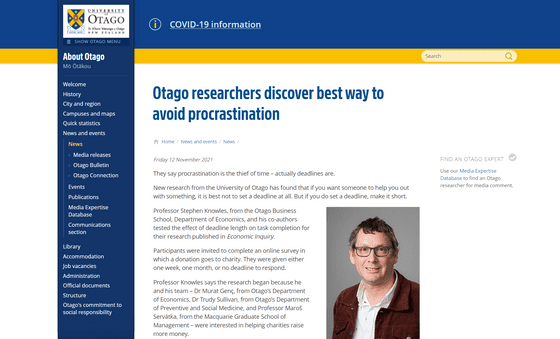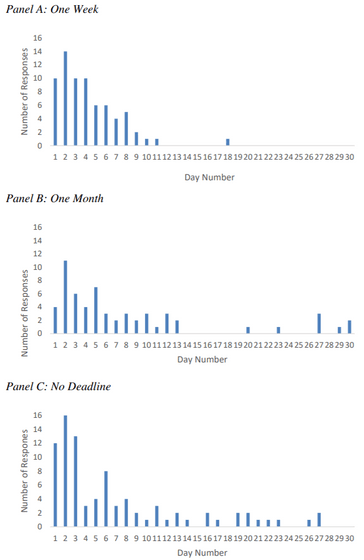It turns out that 'it is better not to set a deadline' when asking people

There are many people who have inadvertently forgotten a job or task that has a deadline and cannot make it in time, or conversely, they have asked someone to procrastinate and have not been able to do it. A study investigating the relationship between tasks and deadline settings has shown that 'when requesting something from a person, it is faster and more reliable to not set a deadline.'
Procrastination and the Non-Monotonic Effect of Deadlines on Task Completion
12 November 2021, Otago researchers discover best way to avoid procrastination, News, University of Otago, New Zealand
https://www.otago.ac.nz/news/news/otago834751.html

A research team led by Professor Stephen Knowles, an economist at the University of Otago, New Zealand, asked about 3,000 people randomly selected from the New Zealand electoral list to investigate the relationship between task deadlines and their performance rates. We conducted an experiment asking you to cooperate with an online survey.
The questionnaire request stated that answering the questionnaire would pay $ 10 to a well-known charity in New Zealand. In addition, the response deadline was divided into three categories: '1 week', '1 month', and 'no deadline set'.
The results of this experiment are as follows. The response rate of the questionnaire increased in the order of 'no deadline set (bottom)', '1 week (top)', and '1 month (middle)'. Also, the response time tended to be earlier for 'no deadline' than for '1 week', which has a short deadline, and for '1 month' to be the latest.

The research team expected that the response rate would be higher for '1 week' than for '1 month', but the result was better for 'no deadline' than for '1 week'. It was unexpected. According to the research team, this result suggests that 'by not specifying the deadline, it may have been conscious that'it should be closed someday'.'
Professor Knowles commented on the results of this experiment, saying, 'If the deadline is long, the feeling of urgency when asking for help is less than when the deadline is short or there is no deadline. In other words, if you can afford the deadline, people will think that you can postpone the request or inadvertently forget it, so the probability of getting it done will decrease. '

Related Posts:
in Science, Posted by log1l_ks







